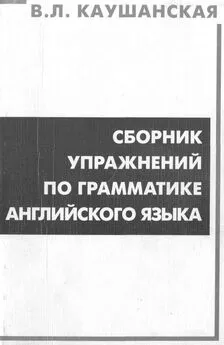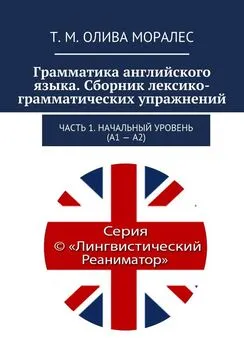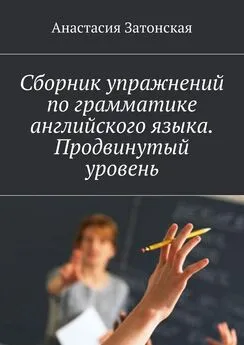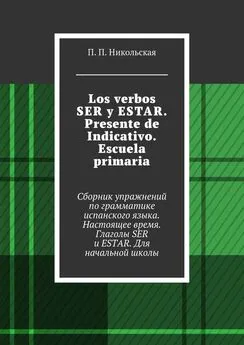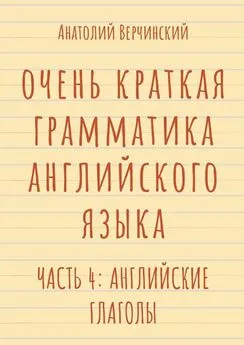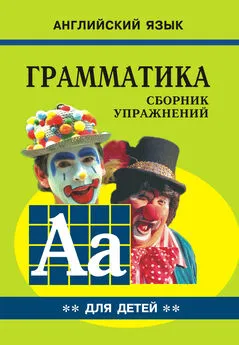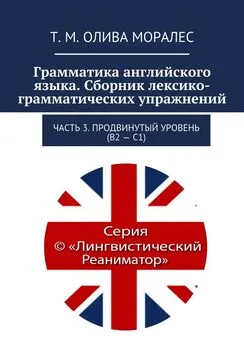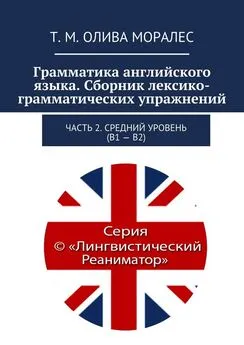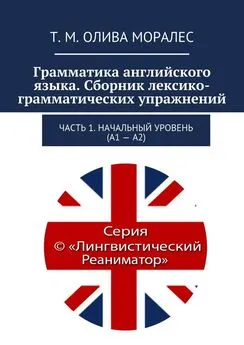В. Каушанская - Сборник упражнений по грамматике английского языка
- Название:Сборник упражнений по грамматике английского языка
- Автор:
- Жанр:
- Издательство:неизвестно
- Год:неизвестен
- ISBN:нет данных
- Рейтинг:
- Избранное:Добавить в избранное
-
Отзывы:
-
Ваша оценка:
В. Каушанская - Сборник упражнений по грамматике английского языка краткое содержание
Сборник упражнений по грамматике английского языка - читать онлайн бесплатно полную версию (весь текст целиком)
Интервал:
Закладка:
1. You can't become prime minister at once. (Shaw) 2. I began once at a dinner to tell a good story. (Jerome K. Jerome) 3. The scene of yesterday was quite transformed. The sea was now pale and almost colourless, yet at the same time brilliant, a sea of liquid light. It merged without a boundary into a sky which at the horizon was of an equal pallor, though changing at the zenith to a very pale vibrating blue. Here and there in the far distance, as if suspended motionless between sea and sky, there were small sailihg-boats with triangular sails. (Murdoch) 4. Mr. Pickwick observed that fame was dear to the heart of every man. Poetic fame was dear to the heart of his friend Snodgrass; the fame of conquest was equally dear to his friend Tupman; and the desire of earning fame in the sports of the field, the air, and the water was uppermost in the breast of his friend Winkle. (Dickens) 5. The evening had already deepened into night. (Dreiser) 6. I know he couldn't love a Linton. (E. Bronte) 7. "John, dear," said Bella, "You're a good nurse; will you please hold baby?" (Dickens) 8. I must remind you again that Adam had the blood of the peasant in his veins. (Eliot) 9. She comes home to a late tea, and after tea she never sews. (Ch. Bronte) 10. He was already chairman of the department. (Wilson)~-ll. Thus he stood by the bank of thfs still lake... marvelling at the subtleties of reflected radiance, feeling the artist's joy in perfect natural beauty. (Dreiser) 12. This is Professor Hallorsen, who was head of the expedition. (Galsworthy) 13. Winter and summer a stove was burning in his room, stoked by Peter Saward's landlady, a Miss Glashan, who also brought him his meals and did the cleaning. (Murdoch) 14. George got out his banjo after supper and wanted to play it, but Harris objected. He said he had got a headache. George thought the music might do him good—said music often soothed the nerves and took away a headache. Harris said he would rather have the headache. (Jerome K. Jerome) 15. A full moon rode between the elm trees and there was silence as of the grave. (Galsworthy) 16. The world is all before him where to choose. A life of stirring work and interest, a life of change and excitement, a life of domestic ease and love! (Dickens) 17. After all, we all live in the future, even if it's a future where we aren't to be found anywhere upon the earth. (Murdoch) 18. But, ere that moment, an astonishing and vivid experience happened to them. One might have supposed that, in the life of Priam Farle at least, enough of the astonishing and the vivid had already happened. (Bennett) 19. There was a certain dignity in the little elderly gentleman's manner of rebuking these youths; though it was not, perhaps, quite the dignity most appropriate to the occasion. (Ch. Bronte) 20. I went into the war when I was seventeen, ran away from school to do it, enlisting as a Tommy and telling them I was nineteen. (Priestley) 21. Phuong was drinking a glass of orange juice and I was having a beer and we sat in silence, content to be together. (Greene) 22. So it was that on the following day, which was a Saturday, Rosa was knocking on Mrs. Wingfield's door at about four o'clock. (Murdoch)
THE ADJECTIVE
Pretty, bushy, weather-stained, thoughtful, hard-hearted, illegitimate, sober, non-party, low-bred, improbable, sceptical, counter-revolutionary, careworn, beloved, wicked, disobedient, long-legged, regular, water-proof, large, well-timed, homeless, shaky, courageous, panic-stricken, blindfold, Portuguese, newly-baked, antique, peace-making, forlorn, illegible, abundant, red-haired, small, deep-blue, bookish, snow-white, respectable-looking.
Cosy, merciful, bad, complete, fat, cheap, big, clumsy, stupid, far, miserable, narrow, virtuous, simple, merry, regular, expensive, low, deep, sad, significant, bitter, intimate, lazy, old, serious, tiny, clever, little, considerate, gay, good, much, dark, beautiful, dear, fit.
1. They had dined well and were now drinking hard... their faces getting __ and __ (red, red) (Priestley) 2. Was there anything in the world __ than indecision? (bad) (Galsworthy) 3. He was only five years __ than I was, which made him forty-five, (young) (Snow) 4. He loved his brother and he had done his brother what people seemed to consider __ of wrongs, (bitter) (Greene) 5. __ sin towards our fellow creatures is not to hate them, but to be indifferent to them, (bad) (Shaw) 6. He had been a great fencer, before the war, __ fencer in Italy, (great) (Hemingway) 7. She is stopping at one of __ hotels in town, (good) (Saroyan) 8. Difficult to believe it was so long ago, he felt young still! Of all his thoughts this was __, __ With his white head and his loneliness he had remained young and green at heart, (poignant, bitter) (Galsworthy) 9. She received congratulations as if she were __ of women, (happy) (Hansford Johnson) 10. Kate remembered the little general; he was a good deal __ than herself, (small) (Lawrence) .11. I think we'll resume the conversation when you're a little __, Caroline, (calm) (Maugham) 12. They had never made __ pretence of believing him. (little) (Greene) 13. Things went from bad to __ (bad) (Saroyan) 14. He took his trinkets, carried them to the __ pawnshop he could find, and being offered forty-five dollars for the lot, took it. (presentable) (Dreiser) 15. He felt her breathing grow — and __ (slow, easy) (Cusdck) 16. To be ashamed of his own father is perhaps __ experience a young man can go through. (bitter) (Galsworthy) 17. It's __ in here than it is on the street. (hot) (Salinger) 18. I think you're about __ girl in school, (pretty) (/. Shaw)19. All his life he had taken pains to be __, __ than his fellows, (strong, brave) (Saroyan) 20. From that moment may be dated the downfall of __ and __ of the Indian nations, that existed within the limits of the present United States, (great, civilized) (Cooper) 21. Mr. Micawber, under pretence of showing me a __ way than that by which I had come, accompanied me to the corner of the street, (near) (Dickens) 22. He would walk here and there and be no __ than an ant in an ant hill, (conspicuous) (Greene) 23. We slept in a double-bedded room, which was __ that the little country inn could do for us. (good) (Conan Doyle) 24. This is Sam Penty one of our __ artists, (good) (Priestley)
Exercise 4. Translate into English.
1. Киев — более древний город, чем Москва; это один из древнейших городов России. 2. В XVI веке Испания была самой могущественной державой мира. 3. Волга длиннее Днепра; это самая длинная река Европы. 4. Ватикан — самое маленькое государство в Европе. 5. Одной из важнейших проблем сегодняшнего дня является установление прочного и длительного мира. 6. Условия жизни трудящихся в странах социалистического лагеря значительно лучше, чем в странах капиталистического лагеря. 7. Можно надеяться, что в ближайшем будущем культурные связи с Англией будут еще более тесными. 8. Точка кипения (the boiling point) спирта ниже точки кипения воды. 9. Платина тяжелее золота; это один из самых тяжелых металлов. 10. Утро было прекрасное, но к вечеру погода стала хуже, ветер усилился, и темные тучи покрыли небо.
1. He basked in the company of the young. (Snow) 2. We must take the bitter along with the sweet. (Reade) 3. She warned the domestics not to touch the child, as Mrs. Osborne might be offended. (Thackeray) 4. It was a surprise to the optimistic: but it was even more of a surprise to the experienced. (Snow) 5. Oh, I know he is a right good fellow, but it belongs to the rank of the impossible. (Meade) 6. Imogen turning her luscious glance from one to the other of the "old dears", only smiled. (Galsworthy) 7. How do I know what's gone on between you? The rights and the wrongs of it. I don't want to know. (A. Wilson) 8. Willoughby was wearing greens, garrison hat, and all his ribbons. (Heym) 9. They were like poor savages confronted with a beautiful white girl. (Murdoch) 10. This year I covered half the world and saw people in such numbers — it seems to me I saw everybody but the dead. (Bellow) 11. But they had been such innocents then I (Galsworthy) 12. He was, as they saw it, part of the rich and superior class and every poor man knew what that meant. The poor must stand together everywhere. (Dreiser) 13. I was soon to discover that Gevaert was never interested in what "inferiors" had to say. (Clark)
THE PRONOUN
1. There's nothing for any of us to do. (Snow) 2. Both these people were resolved to treat Mr. Polly very well, and to help his exceptional incompetence in every possible way. (Wells) 3. Tom presented himself before Aunt Polly, who was sitting by an open window in a pleasant rearward apartment, which was bed-room, break fast-room, dining-room, and library combined. (Twain) 4. Such were the reflections of Felix before the brass tablet. (Galsworthy) 5. It was the sort of solemn warning that a sanguine man gives to others, because he ought to give it to himself. (Snow) 6. Elizabeth and George talked and found each other delightful. (Aldington) 7. What we need is a higher and purer political morality. (Dreiser) 8. She hesitated a moment, and then sat down beside me, and laid her hand on mine. (Dickens) 9. The uniform had been cut for a stouter person than myself, but one, fortunately, of approximately the same height. (Clark) 10. "I didn't know anything about it," cried Charlie indignantly. "I came to see you about something else." (Priestley) 11. What about this coal strike? Will it ruin the country as the papers say? Isn't it a foolish thing on both sides? (Galsworthy) 12. She sat in a state of irresponsible exaltation, watching him, with that strange passive cruelty which is natural and proper in her sex and age. (Wells) 13. None of us except Collingwood knew what the Prime Minister thought of Roger or his policy. (Snow) 14. There were. some aviators in the compartment who did not think much of me. (Hemingway) 15. Then a guarded voice said, "Who goes there?" (Twain) 16. Husbands and wives never listen when they talk to each other, only when the other is talking to somebody else. (Fowler) 17. Let me tell you something. (Priestley) 18. There was at least one person in the world who knew that he was alive and attached some importance to the fact. (Saroyan) 19. What are you talking about? (Snow) 20. I can only say what I think. (Hemingway) 21. He seemed to get prouder and prouder over each item of his own deficiency. (Leacock) 22. We said good-bye to one another and arranged to meet in the autumn. (Maugham) 23. What was it in this girl that reminded turn of that one with whom he had lived but two years, and mourned fifteen? (Galsworthy)-
Читать дальшеИнтервал:
Закладка:
